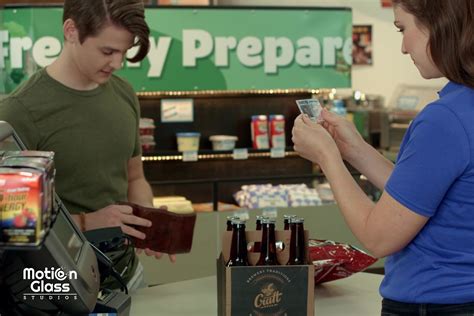How To Sell Alcohol
Ronan Farrow
Apr 02, 2025 · 3 min read

Table of Contents
How to Sell Alcohol: A Comprehensive Guide for Success
Selling alcohol can be a lucrative business, but it's also highly regulated and requires careful planning and execution. This guide will walk you through the essential steps to successfully navigate the complexities of the alcohol industry and build a thriving enterprise.
Understand the Legal Landscape
Before you even think about pouring a drink, you must understand the legal framework surrounding alcohol sales. This varies significantly by location, so research your local, state, and federal regulations thoroughly. Key areas to focus on include:
- Licensing and Permits: Obtaining the necessary licenses and permits is crucial. These vary depending on the type of establishment (restaurant, bar, liquor store) and the type of alcohol you'll be selling. Failure to obtain the proper permits can result in hefty fines and closure.
- Age Restrictions: Strictly adhering to minimum drinking age laws is paramount. Implement robust age verification procedures to avoid legal trouble and maintain a responsible business image. This includes thorough ID checks and staff training on responsible alcohol service.
- Taxation and Reporting: Understand the tax implications of selling alcohol. Accurate record-keeping and timely tax filings are essential to avoid penalties.
- Alcohol Sales Regulations: Different regions have specific rules concerning hours of operation, permitted sales locations, and advertising restrictions. Familiarize yourself with these regulations and comply fully.
Develop a Solid Business Plan
A well-structured business plan is the cornerstone of success in any venture, especially one as regulated as alcohol sales. Your business plan should detail:
- Market Analysis: Research your target market, analyze competitor pricing and offerings, and identify your unique selling proposition (USP). What will set your business apart?
- Financial Projections: Create realistic financial forecasts, including start-up costs, ongoing expenses, revenue projections, and profitability analysis. Secure funding if necessary.
- Operations Plan: Outline your daily operations, including staffing, inventory management, and customer service strategies.
- Marketing Strategy: Develop a comprehensive marketing plan to attract customers. This might include social media marketing, local advertising, loyalty programs, and collaborations with other businesses.
Choosing Your Niche and Sourcing
The alcohol market is diverse. Consider specializing to stand out:
- Craft Beer: Focus on a curated selection of local or unique craft beers.
- Wine Specialization: Offer a niche selection of wines, perhaps focusing on a specific region or grape varietal.
- Premium Spirits: Target a sophisticated clientele by offering high-end spirits and mixology services.
- Specific Event Focus: Cater to specific events like weddings, corporate functions, or festivals.
Once you've defined your niche, establish relationships with reliable suppliers to ensure a consistent supply of quality alcohol at competitive prices.
Prioritize Customer Service and Responsible Alcohol Service
Exceptional customer service is key to repeat business and positive word-of-mouth referrals. Train your staff to be knowledgeable, friendly, and attentive.
Crucially, implement responsible alcohol service practices:
- Know the signs of intoxication.
- Refuse service to visibly intoxicated individuals.
- Encourage responsible drinking.
- Offer non-alcoholic options.
- Provide food options.
- Partner with local transportation services to promote safe travel.
Marketing Your Alcohol Business
Effective marketing is essential for attracting and retaining customers. Consider these strategies:
- Social Media Marketing: Leverage platforms like Instagram, Facebook, and even TikTok to showcase your offerings, engage with customers, and run targeted ads.
- Local Partnerships: Collaborate with restaurants, hotels, and event venues to expand your reach.
- Public Relations: Build relationships with local media outlets to secure positive press coverage.
- Loyalty Programs: Reward repeat customers with discounts and exclusive offers.
Staying Ahead in the Competitive Alcohol Market
The alcohol industry is dynamic. To maintain a competitive edge, continuously evaluate your offerings, adapt to changing consumer preferences, and stay informed about industry trends. Regularly review your business plan and adapt as needed.
By carefully following these steps, you'll significantly increase your chances of successfully selling alcohol and building a profitable and responsible business. Remember that legal compliance and responsible alcohol service are not just important, they are fundamental to your success and sustainability.
Featured Posts
Also read the following articles
| Article Title | Date |
|---|---|
| How To Sue A Car Rental Company | Apr 02, 2025 |
| How To Reheat Frozen Eggplant Parm | Apr 02, 2025 |
| How To Repair An Inflatable Paddle Board Seam | Apr 02, 2025 |
| How To Test A Rear Window Defroster | Apr 02, 2025 |
| How To Store T Posts | Apr 02, 2025 |
Latest Posts
-
How Big Is North Korea Compared To Texas
Apr 03, 2025
-
How Big Is Nine Inch
Apr 03, 2025
-
How Big Is Lost Lands
Apr 03, 2025
-
How Big Is Lake Sunapee
Apr 03, 2025
-
How Big Is Lake James Indiana
Apr 03, 2025
Thank you for visiting our website which covers about How To Sell Alcohol . We hope the information provided has been useful to you. Feel free to contact us if you have any questions or need further assistance. See you next time and don't miss to bookmark.
